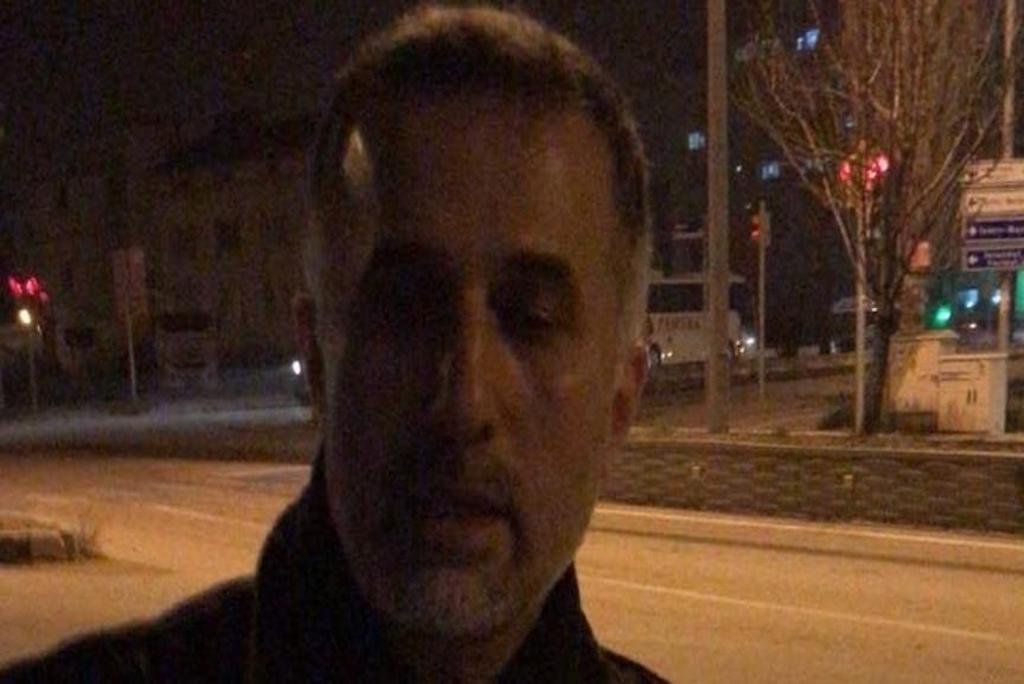Turkish government has detained dozens of people, including judge Mehmet Kaya, the former secretary general of the Supreme Board of Judges and Prosecutors (HSYK), on Thursday across Turkey as part of its massive post-coup witch hunt campaign targeting the alleged members of the Gülen movement.
According to a report by state-run Anadolu news agency, Mehmet Kaya was detained in Çanakkale, a western province of Turkey where he was hiding, as part of an investigation into the Gülen movement. The detentions came during a police operation targeting 10 separate locations in Çanakkale province following detention warrants issued by the provincial chief prosecutor’s office.
Prof. Dr. Murat Şen, former Dean of Faculty of Law at the Melikşah University in Kayseri, which was closed by a government decree under the rule of emergency declared in the aftermath of a controversial military coup attempt on July 15, 2016, was detained in Zonguldak province on Thursday over his alleged links to the Gülen movement. Prof. Şen was accused of being member of a terror organisation and giving financial support to that.
Ankara Chief Prosecutor’s Office has issued detention warrants for 17 academic and administrative personnel of Gazi University on Thursday over their alleged use of ByLock. Police have detained 11 of them over their alleged links to the Gülen movement.
Turkish authorities believe that ByLock is a communication tool among the alleged followers of the Gülen movement. Tens of thousands of people, including civil servants, police officers, soldiers, businessmen and even housewives, have either been dismissed or arrested for using ByLock since the failed coup attempt on July 15, 2016.
In a Sivas-based investigation, police have detained 13 women, who are wives of the police officers who were dismissed from their duties by government decrees, in Sivas, Konya, Kayseri, İzmir, Tokat, Yozgat, Adana, Denizli and İstanbul provinces over their alleged links to the Gülen movement on Thursday. It was claimed that the women used to participate in the religious conversation meeting among the Gülen movement followers.
FORMER İSTANBUL GOVERNOR AND POLICE CHIEF FACE UP TO 15 YEARS IN JAIL
Also on Thursday, İstanbul Chief Prosecutor’s Office has issued detention warrants for 5 police officers as part of an investigation on “Plot in Sledgehammer” probe. Police have detained police officers Necat Aksu in İstanbul province, Mehmet Kılıç in Yozgat province, Hüseyin Yalçın in Adana province, Mehmet Özdemir in Gaziantep province since they had taken place in the operation during Sledgehammer coup investigations. It was claimed that the detained police officers are the members of the Gülen movement in the police department.
In a separate investigation on Thursday, İstanbul Chief Prosecutor’s Office has issued detention warrants for 23 people over their alleged use of ByLock. Police have detained 13 of them during raids in 3 different provinces in the same day.
In a Çankırı-based investigation, police have detained 1o on-duty military officers, 1 retired military officer in Çankırı, Hakkari, İstanbul, Ankara, Hatay, Ağrı and Kastamonu provinces over their alleged links to the Gülen movement on Thursday.
Moreover, a public prosecutor on Thursday demanded up to 15 years in jail for former İstanbul Governor Hüseyin Avni Mutlu and former İstanbul Police Chief Hüseyin Çapkın on charges of having links to the Gülen movement. Mutlu is accused of “being a member of armed terror organization” and Çapkın is accused of “willfully helping the organization, despite not being involved in the organization’s hierarchical structure.”
Mutlu was arrested on Aug. 5, 2016 along with nine other suspects, shortly after Turkey’s July 2016 military coup attempt. Mutlu, who served four years as İstanbul governor until 2014, was reassigned to Ankara to become an Interior Ministry civil servant but was suspended from his position on July 17, 2016. He has denied having any ties to the Gülen movement and rejects all charges.
“Everything about me has been analyzed. It has been seen that I am transparent. I have never had a relationship with this movement. For my whole life I have adhered to the constitution and the law. There is no tangible evidence in the indictment in relation to FETÖ,” Mutlu said at the second hearing of the trial, which took place on Aug. 24, 2016 at İstanbul’s 30th High Criminal Court.
Çapkın, who was arrested on Sept. 3, 2016, has also denied all charges and said in his testimony that “I’m not a part of such an organization. I’ve never received help from such an organization during my career. I’ve never sent my children to any schools belonging to this group.”
Turkey survived a controversial military coup attempt on July 15, 2016 that killed 249 people. Immediately after the putsch, the Justice and Development Party (AKP) government along with Turkish autocratic President Recep Tayyip Erdoğan pinned the blame on the Gülen movement.
Gülen, who inspired the movement, strongly denied having any role in the failed coup and called for an international investigation into it, but President Erdoğan — calling the coup attempt “a gift from God” — and the government initiated a widespread purge aimed at cleansing sympathizers of the movement from within state institutions, dehumanizing its popular figures and putting them in custody.
Turkey has suspended or dismissed more than 150,000 judges, teachers, police and civil servants since July 15. Turkey’s Interior Minister announced on December 12, 2017 that 55,665 people have been arrested. Previously, on December 13, 2017, The Justice Ministry announced that 169,013 people have been the subject of legal proceedings on coup charges since the failed coup.
A total of 48,305 people were arrested by courts across Turkey in 2017 over their alleged links to the Gülen movement, said Turkish Interior Minister Süleyman Soylu on Dec. 2, 2018. “The number of detentions is nearly three times higher,” Soylu told a security meeting in İstanbul and claimed that “Even these figures are not enough to reveal the severity of the issue.”
















